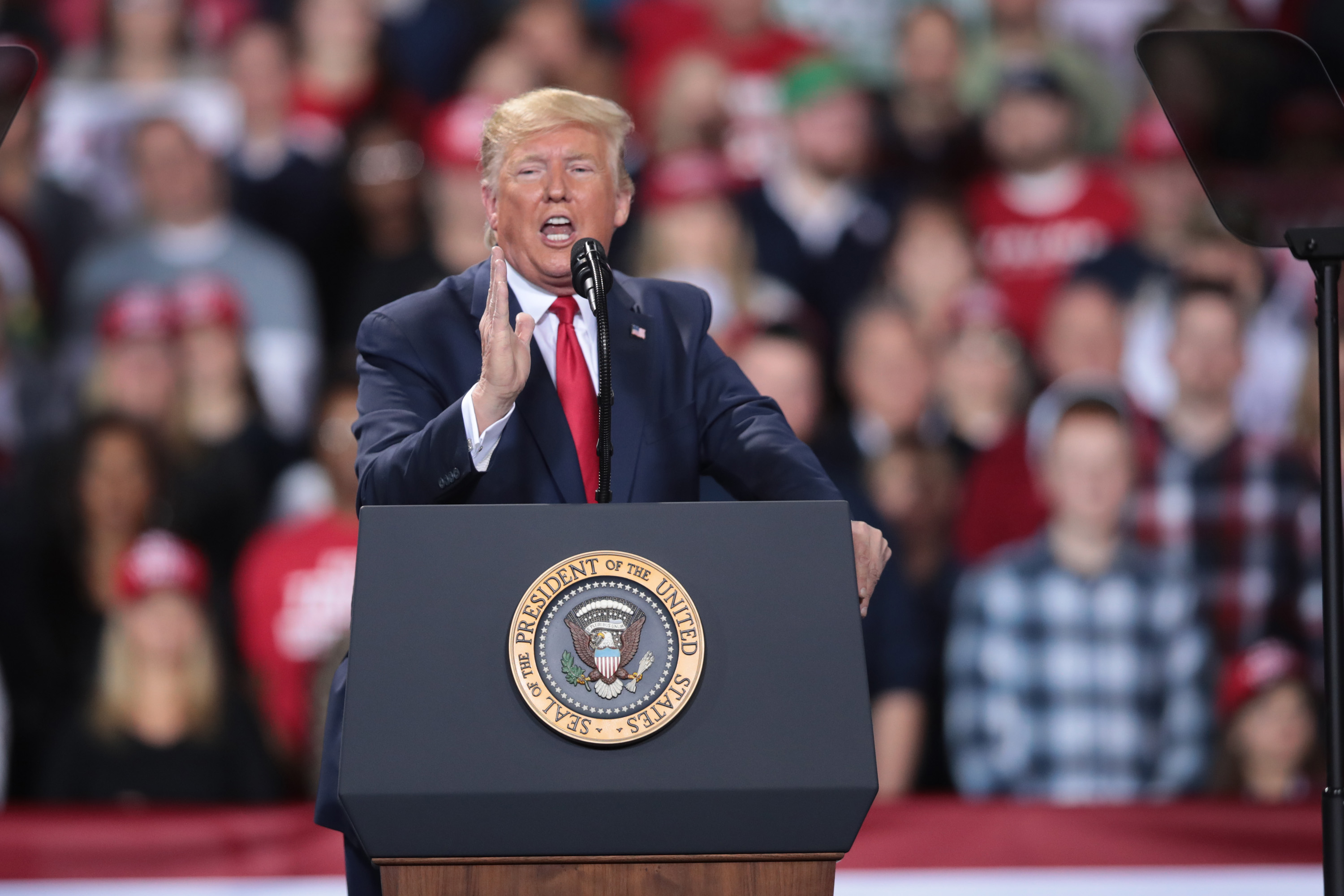Trump Brands COVID-19 Press Conference Coverage Fake News

The smarter way to stay on top of the multichannel video marketplace. Sign up below.
You are now subscribed
Your newsletter sign-up was successful
It is unclear whether it was a temporary hiatus or the end of his daily appearances at COVID-19 briefings, but the President has tweeted a signal he might be backing away amidst a tirade of attacks on the press that included appearing to liken the mainstream media to the deadly virus itself, though it was unclear just what he was referring to.
On Monday (April 27), the President was continuing the attack on the press, tweeting:
[embed]https://twitter.com/realDonaldTrump/status/1254767509460234243[/embed]
He followed that a couple of minutes later with: "FAKE NEWS, THE ENEMY OF THE PEOPLE."
Over the weekend the President signaled his displeasure with the tenor of the COVID-19 press conferences and suggested they could end.
[embed]https://twitter.com/realDonaldTrump/status/1254168730898173953[/embed]
The White House last year ended the long-standing tradition of a daily White House press briefing, though the President has answered questions on the White House lawn on his way to somewhere else.
The smarter way to stay on top of the multichannel video marketplace. Sign up below.
That came after a run-in with a CNN reporter, Kaitlin Collins, last week when the President wouldn't answer a question because he called CNN fake news. The President periodically disses reporters in the press conferences, dismissing questions and questioners.
The Washington Post, another news outlet the President was attacking over the weekend--along with Fox News and the New York Times--reported Monday (April 27) that the White House tried to move Collins from her assigned seat in the front row the day after the dust up, but she would not move and the press conference went on as planned Friday (April 24), though the President did not wind up taking any questions and there were no press conferences over the weekend.
There have been reports that Republican strategists see the press conferences as counterproductive to the party's political aims of keeping the White House and Senate.
Contributing editor John Eggerton has been an editor and/or writer on media regulation, legislation and policy for over four decades, including covering the FCC, FTC, Congress, the major media trade associations, and the federal courts. In addition to Multichannel News and Broadcasting + Cable, his work has appeared in Radio World, TV Technology, TV Fax, This Week in Consumer Electronics, Variety and the Encyclopedia Britannica.

